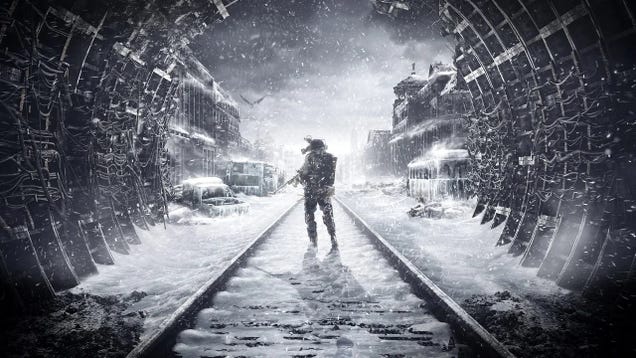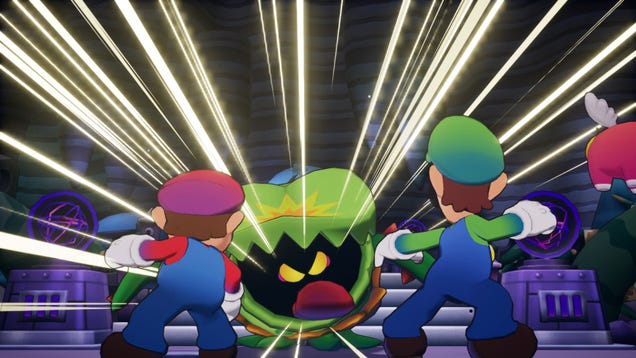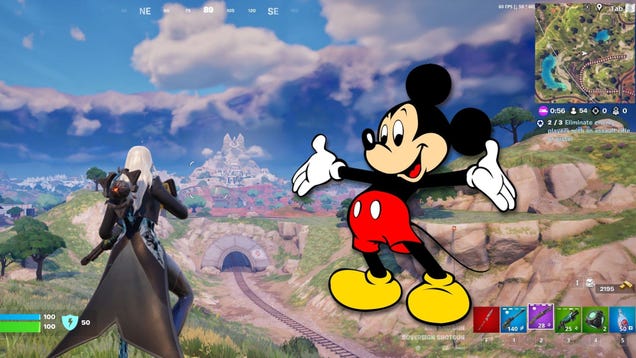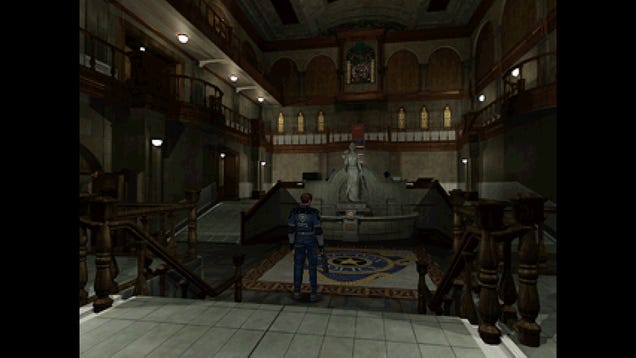In the early 2010s an odd little shooter by the name of Metro 2033 emerged out of nowhere. Adapted from a similarly named sci-fi novel by author Dmitry Glukhovsky, it didn’t quite take the world by storm, but the story-driven FPS about a community trying to survive the nuclear apocalypse by hiding in the subway stations and tunnels of Moscow earned enough love to spawn a franchise. Releasing over the 2010s, the Metro series became the loving torchbearer of janky “weird fiction” shooters after the long hiatus of the now-returning S.T.A.L.K.E.R series.
Suggested Reading
Tactical RPGs, Creepy Circuses & More New Releases | The Week In Games
Suggested Reading
The entirety of the Metro trilogy is on a pretty steep sale right now on Steam, while select titles from the series are cheap on other platforms. You can pick up the whole series, including Metro 2033, Metro: Last Light, Metro Exodus (and its expansion pass) for just over $9 on Steam. On PlayStation, you can also pick up remasters of both 2033 and Last Light for $3 apiece.
The Metro series was developed by 4A Games, which consisted of a lot of ex-developers from the S.T.A.L.K.E.R series, and they share a lot of the same DNA. Both take place in the fallout of nuclear apocalypses in Russia and both are survival games that blend sci-fi and supernatural elements. Whereas S.T.A.L.K.E.R has been more traditionally open-ended though, taking place in the fallout of a second Chernobyl disaster in a region only known as the Zone, the Metro games were far more linear and story-focused.
Metro focuses on the life of Artyom, a young man who comes into his own as a ranger in the Moscow Metro. Throughout the first two games, he investigates beings known as the Dark Ones while trying to navigate the conflicts between the varying districts of survivors that call the underground home. These first two titles, 2033 and Last Light, are often lauded for their tremendous and claustrophobic atmosphere, with most missions occurring in the insufferably dark tunnels under Moscow. On occasion, missions take place above-ground, where the players must don equipment to protect themselves from radiation damage, mutated creatures, and supernatural phenomena and anomalies, all while constantly maintaining the equipment keeping them alive.
This maintenance explodes into a whole crafting system in the third game, Exodus, which is my favorite of the trilogy. Abandoning the cluttered tunnels of Russia, Artyom, his wife Anna, and a party of allies hop onboard a train and explore the rest of war-ravaged Europe—along the way, Exodus becomes much more like S.T.A.L.K.E.R. It shuttles you between hostile open environments and tasks you with crafting the tools of your survival, including gas masks and ammo, and strips the series’ UI elements to make an entirely diegetic interface.
For example, the compass you use is on Artyom’s wristwatch, which also counts down the use of minute-long air filters for his mask. Speaking of the gas mask, it can crack from firefights and needs to be sealed with duct tape and eventually repaired in order to be operable. Rifles are gas-pumped and shoot bullet-like pellets you craft from scarce materials! You spot points of interest with your binoculars and mark them in a map that Artyom needs to manually pull out. Like many have said before, Exodus has the most tremendous sense of place, and for what it’s worth, it is the most immersive game I’ve played.
I love Exodus and still think so fondly about how much it forces you to consider and take care of your stuff. Even if I don’t remember every name of its cast, the tender moments they share in their personal cars onboard the Aurora have stayed with me for longer than I thought possible. The gunplay is fraught with tension as you weigh the challenge ahead against your scarcity of supplies. Even if it doesn’t always come together due to bugs and a level of polish that are emblematic of “eurojank” titles of the era like the Metro and S.T.A.L.K.E.R series, it’s ambitious and I can’t fault it for shooting for the stars.
Ahead of the release of S.T.A.L.K.E.R 2 this fall, I can’t think of a better game series to play. Exodus is the longest but can still be wrapped up in about 30 hours if you try and do everything on offer. And I encourage you to because Exodus is a gorgeous game that’ll stick with you for some time if my own experience is any indication. The first two games are about 10-15 hours each, so you could spend a month of your downtime picking at them and be ready for S.T.A.L.K.E.R 2’s launch in November. Run, don’t walk, to pick up these games, and you’re welcome in advance.












